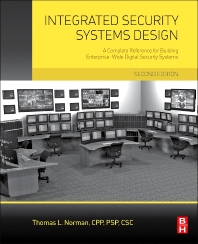Security & the Law
What is the Prevailing Wage for Testing & Inspecting Fire Systems?

An important case involving the installation, service and programming of fire alarm systems was recently decided in Illinois. A group of individuals employed by the defendant filed a complaint asserting claims under the Employee Retirement Income Security Act (ERISA) and the Illinois Prevailing Wage Act, as well as a claim for unjust enrichment.
The defendant is a seller of fire alarm systems and also designs, manufactures and programs those systems. The plaintiffs are the defendant’s current and former employees who worked on public projects in Illinois. When a customer purchases a system, the defendant supplies a fire alarm panel and the associated components, such as smoke detectors, pull stations, heat detectors and strobes, and the electrical contractor installs at the customer’s location the electrical wiring, the fire alarm panel and the components.
In order for the smoke detectors, pull stations and other components to work properly with the fire alarm panel, the fire alarm panel must be programed. The labor to program each fire alarm panel is provided by the defendant, who employs installation technicians who perform that work. The programming is done on a company laptop using proprietary software, which can be used only by a technician possessing a specialized key. Much of the programming can be done by the technician at any location so long as a technician has a laptop, the key, software and a map of the system. A technician can do most of the programming at the defendant’s office, the technician’s home or the customer’s location.
The technician who programs the fire alarm panel then also tests the system with the electrical contractor.
If inspectors detect problems during the fire alarm or sprinkler inspections, customers have the option of hiring the defendant to correct the problem. When the defendant is hired to correct those problems on public projects, the defendant sends an employee to make a service call and pays the prevailing wage for those service calls. The defendant does not, however, pay the prevailing wage for the programming work, for the acceptance testing or for the periodic testing of sprinklers and fire alarm systems.
More specifically, when defendant pays the prevailing wage for service calls, it pays according to the wage classification of electronic systems technicians.
The Illinois Prevailing Wage Act provides that “Not less than the general prevailing rates of hourly wages for work of a similar character on public works in the locality in which the work is performed … shall be paid to all laborers, workers and mechanics employed by or on behalf of any public body engaged in the construction or demolition of public works.”
This includes any maintenance, repair, assembly or disassembly work performed on equipment that is owned, leased, or rented. Only such laborers, workers and mechanics directly employed by contractors or subcontractors in actual construction work on the site of the building or construction job shall be deemed to be employed upon public works.
“Only those laborers, workers and mechanics doing actual construction work (including maintenance) on site must be paid the prevailing wage, which leads to the question, what is construction under the act?”
So only those laborers, workers and mechanics doing actual construction work (including maintenance) on site must be paid the prevailing wage, which leads to the question, what is construction under the act?
The parties each filed cross-motions for summary judgment. The plaintiffs argued that periodic testing and inspecting work performed by inspectors fall in the category of maintenance and thus are construction.
The court disagreed, indicating that this work is required periodically by life safety standards and reviewed to determine whether any components of the system have failed or are working improperly. Inspectors make a list of any problems and present a list of problems to the customer. The inspectors do not fix the problems. These undisputed facts led the court to conclude that the testing itself is not maintenance work. If the testing determines that any portion of the system is not working properly, then any necessary corrections or repairs would be maintenance work.
The court pointed out that the programming of fire alarm panels can be performed off site, but the final portion, installing the software to the already installed panel, must be performed on site. The court agreed with the defendants that any programming work performed off site is not covered by the act.
The court pointed out that the work of downloading the programming to the installed fire alarm panel, which is the last step in installing the system, falls within the broad range of the Prevailing Wage Act. Therefore, the plaintiffs’ motion for summary judgement was denied with respect to the periodic testing/inspecting work, which the court held is not covered by the Prevailing Wage Act and the defendant’s motion for summary judgment was granted in part and denied in part.
Looking for a reprint of this article?
From high-res PDFs to custom plaques, order your copy today!








